WNET / UCH Urban Academy
“Exploring Powerful Ideas Inquiry-Based Teaching: Discussing a Teacher’s Role”
ASKING RIGOROUS QUESTIONS
(in classroom)
SHEILA KOSOFF:
So if we turn to page 146, this is when they go to the hotel. This is when they’re starting their journey, their cross-country journey through America, right? So it says, “Children welcome. Pets allowed. You are welcome. You are allowed.” So what do you guys think of that he sees her as a pet? Because you were saying that before, in part two, that he was a prey but he sees her as a pet. Lee?
STUDENT:
Yeah. He calls her his pet a lot throughout the book like “Oh my pet…”
SHEILA KOSOFF:
You guys have pets, right?
STUDENTS:
Yeah.
(in roundtable)
SHEILA KOSOFF:
In book one of Lolita, they saw Humbert as this dynamic and interesting character, somebody they would want to befriend. (laughs) And they saw Lolita as the person who was in charge of everything and seducing him and so what I wanted them to do was focus on the language that he’s using to describe her and see what they make of it.
AVRAM BARLOWE:
I think the way you phrase the question is critical because you’re not- you’re saying, “What do you guys think of him using the word ‘pet’?” And, and that’s open to different interpretation. You’re not saying, “What does he mean by using the word ‘pet’?” which is sort of a conventional way of asking that question and I think, you know, we struggle with what’s an open-ended question that’s, that’s also a rigorous question.
TERRY WEBER:
It’s always an open-ended question.
AVRAM BARLOWE:
It should be an open-ended question.
TERRY WEBER:
There’s no particular answer. I mean, it’s like –
AVRAM BARLOWE:
It should be a question that you can come out with- you can develop different answers to. You want to ask it in a way that it feels as if- it invites different interpretations.
TERRY WEBER:
But I think it also points out that- I mean, there’s so many times that kids read a paragraph and they recognize, they’ve seen all the worlds in it before so they read right through the paragraph and they have no idea what the paragraph said because they don’t know what these two words that they’ve seen before mean next to each other. So when you’re getting to the meat of things by saying- well the way Avram said you asked the question was so great because it allowed the kids to explore the different meaning of pet. And you even mentioned you guys have pets. (laughs) Right but it’s sort of explores that there’s more than, ‘How did you think it meant?’ or you know when you read it.
AVRAM BARLOWE:
That’s always raises an inter- That goes back to what we were talking about before which is that those are decisions that you have to make, right? You know, you make decisions about what are you gonna let them try to pull out themselves and where are you gonna draw their attention to something and, um, there’s always a balance I think you’re looking for, no?
SHEILA KOSOFF:
Right. And I also think that questions or that line of questioning helps students to develop papers because it helps them to think about how can I engage in this text? What kind of questions do I have and how can I go about, you know, sort of investigating this question?
AVRAM BARLOWE:
Right and when they write you want them to feel some ownership of what they write.
SHEILA KOSOFF:
Exactly.
AVRAM BARLOWE:
They’re writing about a question that’s meaningful to them and the best of those questions come out of-
SHEILA KOSOFF:
Something that’s open-ended and class discussion.
AVRAM BARLOWE:
Class discussion yeah.
*** TAPE END ***
*** TRANSCRIPT END ***

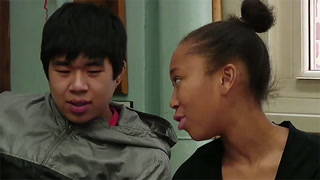
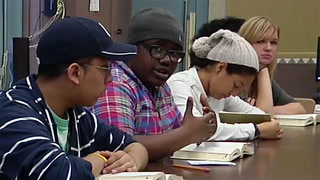
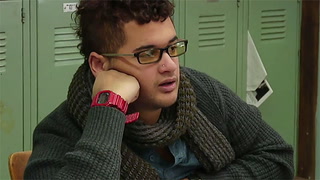
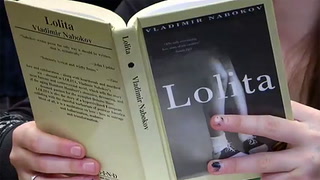
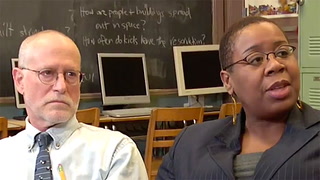
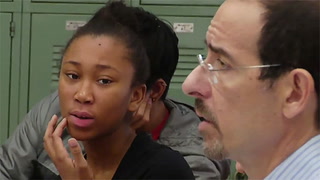
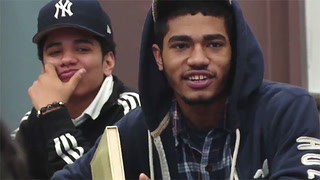
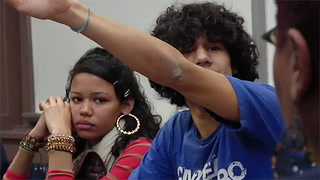
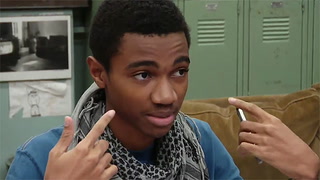
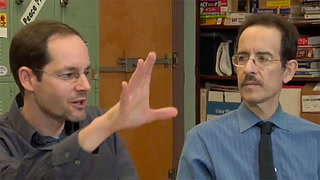
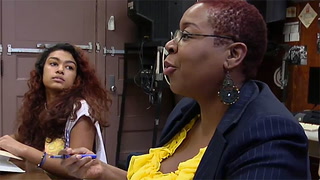
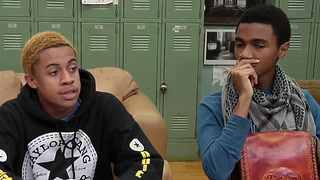








15 Comments
connie smith Feb 26, 2020 1:46pm
I feel these questions are rigorous enough because it gets the students the deepen their knowlegde of the content and are having to apply their thoughts.
heather Hoffman Jan 2, 2020 2:46pm
I feel that the questions are rigorous enough becuse they lead to everyone thinking more deeply about the topic that they are discussing. The responses are open to their personal interpretation which validates each person's thoughts but can also help to guide others into perspectives/viewpoints that they may not have thought of.
Robin Stricklin Dec 10, 2019 8:28pm
Open-ended questions allow for immense conversations about the topic at hand. Allowing the students to engage with the open-ended questions is important to their learning.
Emily Brackins Jun 6, 2019 5:00pm
The rigor in the question comes from the teacher asking the students open-ended questions. They are talking about how Lolita has been called a "pet". She draws them in by asking them if they have pets. This allows everyone to draw on personal experience. Everyone is able to draw on their own schema.
Joannie Cruz May 25, 2019 10:24pm
I like this type of forum. We learn a lot. The teacher are great.